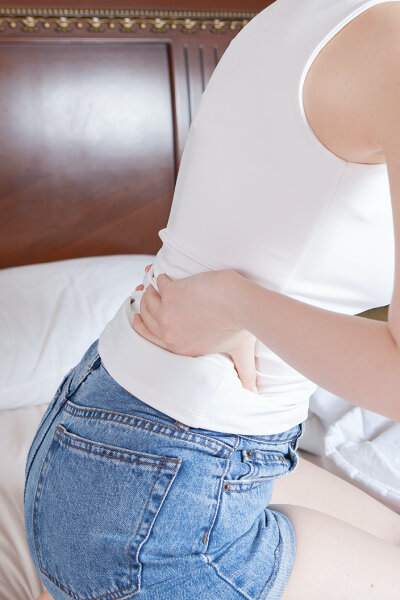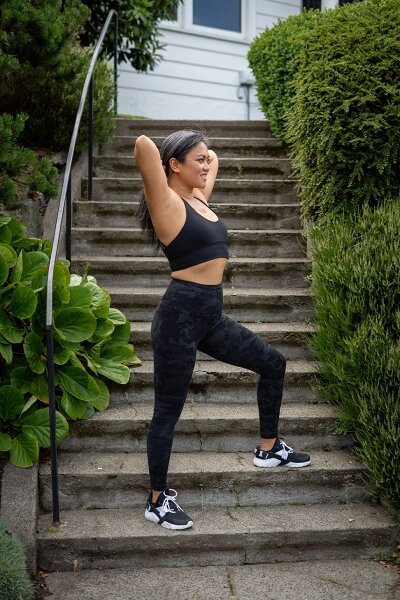The Red Tide, Aunt Flo, monthly caller — these are all names for our periods. But even as people who get periods every month, we may still be victims of myths and misinformation about them. To help us learn more about ‘that time of the month’ and how it relates to our overall health, we spoke with Dr. Edwin Ong of RMDY Clinic. Here, he shares the truth about periods, from how normal period cramps really are to if your period can sync up with another woman's.
The 411 on period cramps — what does normal mean, really?

When does menstrual pain become too painful?
Is it really normal to have period cramps every. single. month?
Yes, it's normal to have cramps during your period, especially during the first two to three days. It goes down to how the body actually expels blood.
"Menstrual cramps occur due to the body’s production of prostaglandins, which are hormone-like compounds released by the uterine lining (endometrium) that help the uterus contract and relax so that the endometrium can detach and flow out of the body," Dr. Ong said.
However, if your body produces too many prostaglandins, it causes the uterus to contract strongly. This results in reduced blood flow and oxygen to the uterine muscle tissue which is the cause of period pain.
When are period cramps too painful and a doctor is required?
While experiencing menstrual cramps is perfectly normal, there's also a point when you should pay more attention to what your body is telling you. Dr. Ong recommends consulting a doctor if your cramps are severe and can't be relieved with painkillers; your ability to work, study or do any other everyday activities is significantly affected (curling up in bed all day levels); or your cramps are suddenly or unusually severe or persist beyond a few days. If you experience these for two or more cycles, it's time to consult a professional who can help you manage the pain and return to your normal quality of living.
Are period cramps really as bad as a heart attack?
Speaking of period pains, you may have seen that viral TikTok about period cramps having the same pain levels as a heart attack. But is it true?
"Yes, it is possible for period cramps to be as painful as, or even more painful than, having a heart attack," Dr. Ong explained. "Heart attacks may often present with only mild pain, and sometimes have no pain at all."
However, he also warns against comparing the two conditions. "It would be unwise for a lady to have the misconception that if she were to experience a heart attack, she should expect chest pains of the same pain level as her period cramps."
Debunking period myths
Myth #1: My period can "sync up" with another woman's if we spend enough time together.

Period syncing is a matter of chance.
Unfortunately, your period can't really sync up with your bestie's even if you spend time together 24/7. And no, pheromones don't have anything to do with it.
"Menstrual synchrony might occur due to the laws of probability more than anything else," Dr. Ong said. "If you have your period for one week out of the month, and you live with three other women, odds are at least two of you will be having your period at the same time."
Period cycles also vary from person to person, so there's bound to be some overlap every now and then.
Myth #2: I can't get pregnant during my period or immediately after it.
"Although it is very unlikely to get pregnant from having sex while on your period, it is technically possible if you are unaware of your fertile period," Dr. Ong explained. "If you have a shorter menstrual cycle — for example, you get your period every 21 to 24 days — this means that you will ovulate earlier. Sperm can survive in the vagina for up to five days, so it is possible to have sex towards the end of your period and then conceive four or five days later due to early ovulation." If you're actively trying to avoid pregnancy, you're still better off using barrier contraceptives i.e. a condom.
Myth #3: I should avoid exercise and other strenuous activities during my period.

Listen to your body.
While it's all too tempting to minimise physical activity during that time of the month, it doesn't mean you can't have any and there's no medical reason to do so. In fact, you may even want to reap the benefits of exercise during your period. "The production of serotonin and endorphins helps elevate your mood and don't impact the severity of menstrual symptoms."
But the rule of thumb is to listen to your body and what it's telling you it needs. "As the menstrual flow during the first few days may be heavier, you may notice lower energy levels and muscular strength, and more pronounced muscle soreness after exercise. If this is the case, it may be a good idea to reduce the intensity of your workouts during the first few days of your period."
Which of these period facts or myths surprised you the most?
If you want to get checked, here are some women’s clinics in Singapore you can go to.
Comments, questions or feedback? Email us at [email protected].








